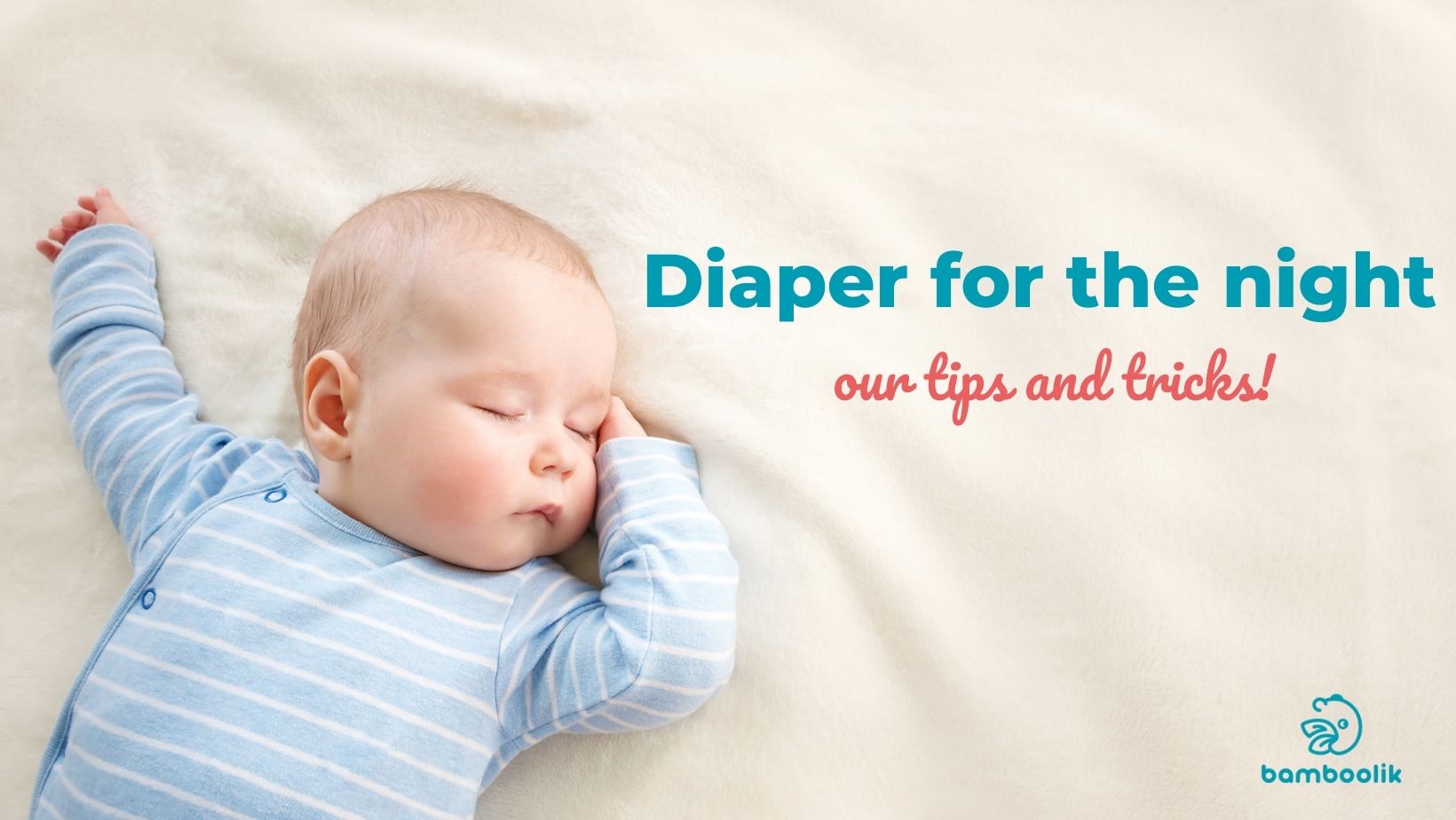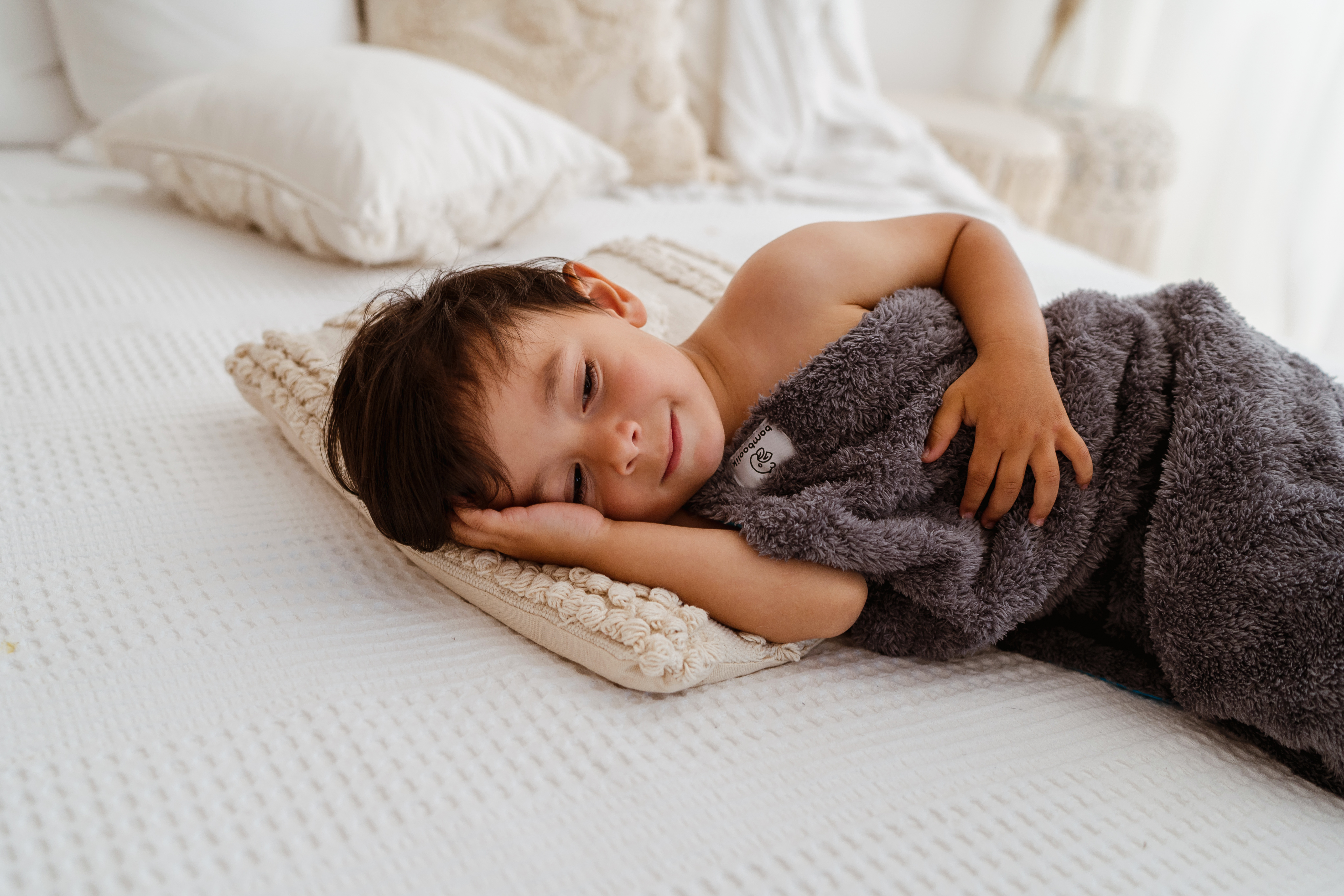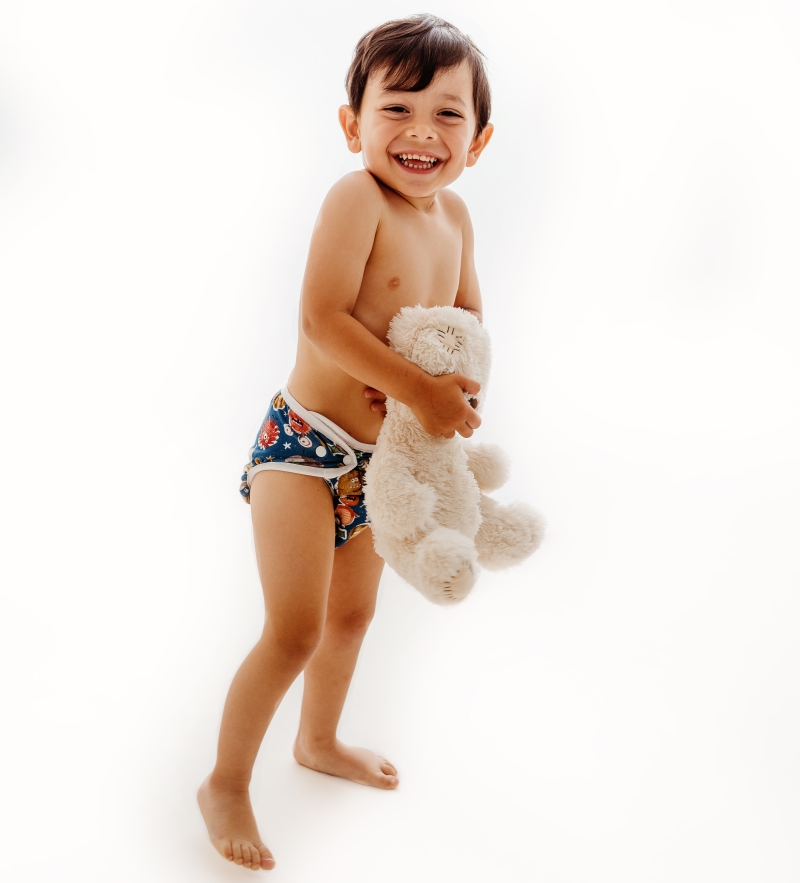
How to approach diapers at night? We’re happy to give advice as we’ve got plenty of parental and diaper experience.
How To Change Diapers at Night
A milestone that almost every new parent eagerly expects: Your baby starts sleeping through the night. Unfortunately, there’s no fool-proof manual for how to achieve this. Babies are different, parents are different, situations are different. Every child is unique and we can't predict how often and for how long your baby will need to feed at night. Parents of more children will definitely agree with us here – they know that even if they treat their children the same, the result is never the same.
So please don’t expect us to tell you how to MAKE your baby sleep through the night. We can only give you diaper tips and share our best practices.
Disclaimer: Newborns poop often :-) Their digestion is not fully developed yet which makes them poop almost every time they feed. This means you have to change their diapers after almost every feeding.
The most basic rule for a healthy bum is: Always change a pooped diaper ASAP. The night is no exception.
 Once your baby’s digestion is fully developed, they stop pooping after every feed (especially at night). Usually, this happens between 3 and 6 months of age. As your baby’s regime becomes more regular, all your baby wants to do at night is to sleep. They might wake up to feed but they fall back asleep right after that.
Once your baby’s digestion is fully developed, they stop pooping after every feed (especially at night). Usually, this happens between 3 and 6 months of age. As your baby’s regime becomes more regular, all your baby wants to do at night is to sleep. They might wake up to feed but they fall back asleep right after that.
Moving your baby around during a diaper change might wake them more than you’d like, even if you try to be as gentle as possible. That’s why we’d recommend to minimise diaper changes at night.
How to Choose Overnight Diapers?
The most important thing you need at night is absorbing capacity. Parents who use disposables usually go one size up in comparison to their regular day diaper. However, while the bum gets aired multiple times a day during diaper changes, at night, the sensitive skin on the bum might suffer without a diaper change.
So, how to avoid an irritated bum and get a really absorbing overnight diaper? Cloth diapers could be the answer as they’re much more breathable than disposables.
But how to deal with wetness in cloth diapers? Most babies hate it when they’re wet and even if they don’t, skin exposed to wetness for many hours won’t do your baby any good. This is especially true for children with sensitive skin.
Luckily, there’s Stay Dry layer coming to your rescue. It effectively diverts wetness away from the skin, thus keeping your baby’s bum comfortably dry even when their diaper’s very wet. Skin irritation due to wetness gets ruled out.
Where to Find the Stay Dry Layer?
Night Fitted Diaper
Stay Dry layer is the contact layer in our Night Fitted Diaper. It fits children from just 3,5 kg and we manufacture it in Europe from certified organic cotton of European origin. The best overnight solution even for the tiniest (and sleepiest) babies.
Night Fitted Diaper has a pocket into which you put our Organic Cotton Terry Prefold which is extremely absorbing. This overnight diaper will never leak! If you need to boost the absorbency of this Night Fitted Diaper further, just add another absorbing insert – e.g. our Organic Cotton Short Insert. (But truth be told, the absorbency boost is needed very rarely.)
Another pro of our Night Fitted Diaper is that it’s absorbing all around its surface so it doesn’t leak while your baby sleeps on their side. While keeping their skin dry at the same time, thanks to the Stay Dry layer. Just don’t forget to put on waterproof Diaper Covers over the Night Fitted Diaper.
Stay Dry Diaper Liners
You can even buy JUST the Stay Dry layer in the form of diaper liners. Thin rectangles from the Stay Dry fabric are super cheap and will save not just your baby’s sensitive skin but also make manipulation with the diaper’s content easier.
Attention, if you are using our Night Fitted Diaper with the integrated Stay Dry layer, don't add the Stay Dry diapers liners. Two layers of Stay Dry material would prevent urine from being soaked into the asorbent part, and the diaper might leak.
How to Approach Potty Training at Night?
Again, there’s no universal advice for everybody. Every child is unique. Some babies might sleep tighter, some might take longer to fully wake up (actually, babies don’t pee when sleeping very tight; if they pee, it’s usually right before they fall asleep or before they fully wake up).
If potty training at night is the issue you’re currently dealing with, we’ve got three pieces of advice for you:
- It's normal that potty training at night comes sometime later after successful potty training during the day (as with everything, there are exceptions to this rule).
- Night wetting is completely OK until 6 years of age.
- Every healthy child will get there in the end.
We’d never recommend to push your child into night potty training. Or into potty training for that matter. And even once you do achieve it, accidents might happen every now and then. Especially when your baby’s sick or there’s a big change in their life (like when they get a sibling!).
Do you have any more questions on the topic of overnight diapers or even something else diaper-related? Feel free to contact us – via our hotline, e-mail, chat box here on our website, or via our social media.



